
Autism has increased tenfold in the last twenty years. Without question there is a reason for such an escalation to occur. Despite many years of assuming that autism is primarily an untreatable brain disorder, today many children are being helped to get better by treating biological imbalances and the potential culprits rather than treating the resulting behavior.
Through trials, scientists have identified autistic patients with nearly double the levels of oxidative stress than healthy controls. Oxidative stress is the result of excessive free radicals.
Our brain cells are highly susceptible to the damage from free radicals and in particular, the young developing brains of children. Our brain cells are protected by the antioxidant glutathione which is found in every cell in our body’s and is our livers main antioxidant. Autistic children have been evaluated with brain inflammation, high levels of toxic metals and low levels of the antioxidant glutathione, zinc, MT (metallothionein) (1,2), and sulfur. In addition, poor functioning digestive systems including leaky gut and allergies.
DAMAGING LEVELS OF OXIDATIVE STRESS AND BLOOD VESSEL FUNCTION
Although Autism is described as a complex neurological disorder; oxidative stress is one feature area, characterized by an imbalance of the antioxidant defense system and an increased free radial production. Through low antioxidant levels, children with autism are less able to detoxify heavy metals such as mercury found in the air, food and a vaccine preservative called thimerosal. (3.4, 5)
Research led by Domenico Pratico MD, an associate professor of Pharmacology, published their study in the August 2006 issue of the Archives of Neurology demonstrating the first observation that the rate of thromboxane (an index of platelet activation), and prostacyclin synthesis (a measure of blood vessel activation) are both not only significantly increased in autism, but are closely correlated with the rate of oxidative stress, compared with controls. His colleagues reported, “Children with autism have significantly higher urinary levels of isoprostane, thromboxane and prostacyclin.” Dr. Pratico’s team further measured the levels of isoprostane, a chemical byproduct of free radicals that attack fat cells and discovered that autistic patients had approximately double the levels of oxidative stress. (6)
Dr. Pratico continues to say, “In general, it is known that abnormalities in blood vessels can be clinically reflected by an abnormal blood flow. In this regard, it is interesting that earlier neuroimaging studies of autistic children have demonstrated a reduced amount of blood reaching the brain. Shedding more light on the relationship of oxidative stress and blood vessel health to the pathology of autism could lead to improvements in therapy.
(ARCH Neurol 2006:63:1161-1164)
Dr. Alexander Schauss comments on the above study in reference to reducing oxidative stress. He suggests that by consuming quality juices that contain high levels of antioxidants, a reduction of oxidative stress and improvement of blood vessel function may be possible. Further studies are taking place in these areas.
BRAIN INFLAMMATION AND IMMUNE RESPONSE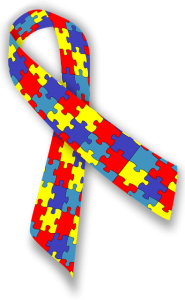
It has been reported in several studies through brain imaging, a correlation between brain inflammation and autism. Dr. Herbert, a Harvard pediatric neurologist knew they had an important finding when observing the white matter of the brain as opposed to just looking at the cerebral cortex, prompting the question, “Could white matter become chronically inflamed?”
Supporting research from Carlos Pardo, a neurologist at Johns Hopkins in a 2005 study in the Annals of Neurology, found inflammation in immune responsive brain cells of autistic patients. “Patients with autism report lots of immunological problems. We looked for the fingerprints of those problems in the brain.” says Pardo. “We had brain tissue from autistic individuals as young as 5 and as old as 45 and we found neuroglia inflammation in all of them. Neuroglia is a group of brain cells that are important in the brain’s immune response. This inflammatory reaction appears to happen both early and late in the course of the disorder. If it happens early, it could dramatically influence brain development. We’re very excited about this research because one potential treatment approach then, is to down regulate the brain’s immune response.”
FLAVONOIDS REDUCE OXIDATIVE STRESS AND INFLAMMATION
A host of benefits are demonstrated after consuming flavonoids (antioxidants), from mild and protective to fighting degenerative diseases. Noticeable progress in the areas of reduced inflammation and epileptic seizures; improved behavior, mental clarity and relationship interactions and calming, following regular consumption of flavonoids.
Fruits and berries containing the highest antioxidant levels are found in the hot regions of the world. They contain far greater amounts of these special flavonoids than any foods that we are use to eating when living in the northern hemisphere because they act as the plants sunscreen. Examples of such fruits in sequence of antioxidant level are as follow: acai, aronia, pomegranate, cranberry, cherry and blueberries. (7,8,9)
High quality juice products can be purchased in a variety of stores today and through direct sales companies. To ensure the highest quality possible when purchasing products from great distances, buy only those that have been processed with a flash frozen freeze dried method. Note also that if your berry of choice is the acai investigate before you buy. Most of the acai products currently being sold have removed the very valuable essential fatty acids for esthetic reasons – fat floats!
Dr. Rimland, founder of the Autism Research Institute is considered a hero for his unrelenting dedication to autistic children bringing hope and revolutionizing the field of autism. Although unaccepted by others in his profession, Dr. Rimland believed that drugs often caused more harm than good and conducted tests to identify problems in metabolism which he corrected with natural substances through the use of diet and supplements.
Astaxanthin Benefits Brain Health
Astaxanthin benefits cognition in a number of ways. This king of the carotenoids, lowers inflammation and protects against oxidative stress in the brain and body. Because oxidative stress promotes the progression of cognition impairment, supplementing with astaxanthin and/or other antioxidants will help protect against brain neurons and tissue damage. Research studies confirmed significant improvements in cognitive functions (ability to understand and complete complex tasks accurately and quickly), was concluded in a 2018 study performing a clinical trial determining the effects of astaxanthin. 10.
Copyright © 2016 – All Rights Reserved – Michelle Honda Ph.D.
Announcement
Look for my new forthcoming books “Reverse Depression Natually”2020), ” Reverse Alzheimer’s Naturally”2018, “Reverse Heart Disease 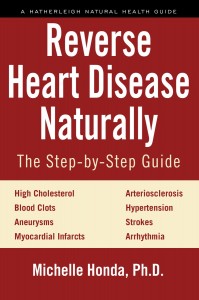 Naturally” (Jan.31, 2017), “Reverse Thyroid Diseases Naturally” (2018) and “Reverse Inflammation Naturally“ (May 31, 2017), “Reverse Gut Diseases Naturally” 2016
Naturally” (Jan.31, 2017), “Reverse Thyroid Diseases Naturally” (2018) and “Reverse Inflammation Naturally“ (May 31, 2017), “Reverse Gut Diseases Naturally” 2016
Where to Purchase Reverse Gut Diseases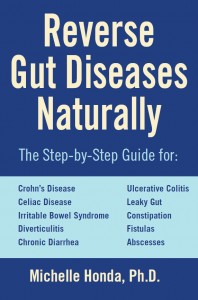 Naturally
Naturally
Hatherleigh Press Page Buy Book RGDN
Local Book Stores in US and Canada
Reference
1 Human Protein Po4733-Metallothionein-IF(MT-IF), (HQPO376). Bioinformatic Harvester
2 Walsh, W. PhD, Metallothionein Deficiency in Autism Spectrum Disorders, 2002
3 Sogut S, Zoroglu SS, Ozyurt H, et al. Changes in nitric acid oxide levels and antioxidant activities may have a role in the pathophysiological mechanisms involved in autism. Clin Chim Acta. 2003;331:111-117.
4 Chauhan A, Chauhan V, Brown WT, Cohen I. Oxidative stress in autism: increased lipid peroxidation and reduced serum levels of ceruloplasmin and transferring –the antioxidant proteins. Life Sci. 2004;75:2539-2549.
5 Zoroglu SS, Armutcu F, Ozen S, et al. Increased oxidative stress and altered activities of erythrocyte free radial scavenging enzymes in autism. Eur Arch Psychiatry Clin Neurosci. 2004;254:143-147.
6 Pratico D, Lawson JA, Rokach J, FitzGerald GA. The isoprostanes in biology and medicine. Trends Endor Metabol. 2001;12:243-247
7 Hassler C. Nutritional implications of Dietary Phytochemicals –ADA meeting 1995
8 McBride J, Plant Pigments paint a rainbow of antioxidants. Agricultural Research. 11,1,1996
9 Rogez H. er al. Biochemical and technical Studies on Acai. Centro Tecnologic, and Acai: Composition and Improvements in Preservation. Belem:EDUFPA:2000
10 Randomized Controlled Trial J Alzheimers Dis. 2018;62(4):1767-1775. doi: 10.3233/JAD-170969. Effects of Composite Supplement Containing Astaxanthin and Sesamin on Cognitive Functions in People with Mild Cognitive Impairment: A Randomized, Double-Blind, Placebo-Controlled Trial.Naoki Ito 1, Hitomi Saito 1, Shinobu Seki 1, Fumitaka Ueda 1, Takashi Asada 2. Affiliations expandPMID: 29614679 PMCID: PMC5900571 DOI: 10.3233/JAD-170969 https://pubmed.ncbi.nlm.nih.gov/29614679/
Disclaimer
While close attention was given to the accuracy of information in this article, the author accepts neither responsibility nor liability to any person with respect to injury, damage, loss or any circumstances involving alleged causes directly or indirectly related to the information in this article. The sole purpose is to educate and broaden ones awareness. This information is not meant to replace medical advice or services provided by a health care professional.





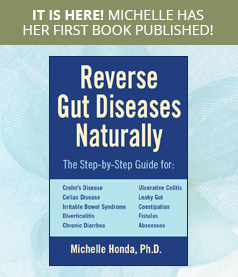

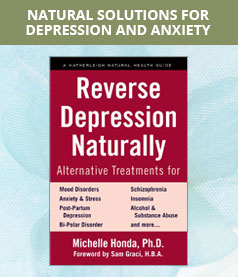
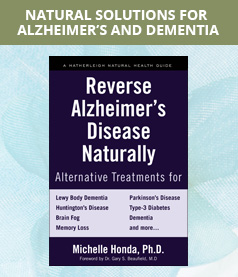
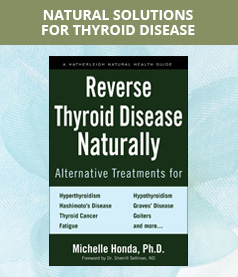

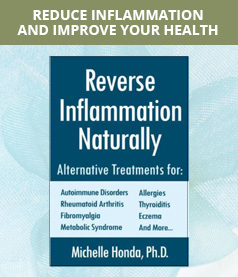
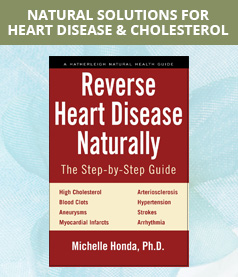
Follow Us!